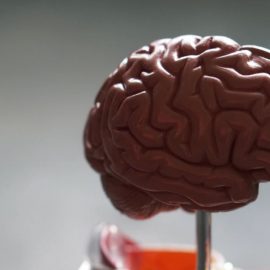

This article is an excerpt from the Shortform summary of "Nudge" by Richard H. Thaler and Cass R. Sunstein. Shortform has the world's best summaries of books you should be reading.
Like this article? Sign up for a free trial here .
How can you nudge organ donation? How can a nudge for organ donation increase the supply of donated organs?
Organ donations are contingent on people signing up to be organ donors. Nudges can increase the number that sign up.
Read more about how to nudge organ donation.
How to Nudge Organ Donation
Despite the fact that large majorities of Americans support organ transplantation and are willing to be donors when polled, they frequently fail to inform their loved ones of their wishes or to register as organ donors themselves.
Given the dire need of organs—as of January 2006, there were approximately 90,000 Americans on organ waiting lists, many of whom would die still waiting—it’s vital for policymakers to nudge organ donation, transforming Americans’ willingness to be donors into concrete action.
Mandated Choice
The choice architecture that aligns most closely with libertarian paternalistic principles is “mandated choice”—in this instance, the requirement that aspiring or renewing drivers indicate whether they want to or don’t want to be organ donors before receiving their license. Given Americans’ general positive sentiment toward organ donation, this strategy of “priming” individuals is likely to result in large increases in organ donors; and it preserves freedom by giving people the choice to opt in or out.
Mandated choice would replace the current “explicit consent” regime, which has “nondonor” as a default and requires people to opt in, typically by checking a box on a driver’s license. Although this strategy preserves choice, it neglects to take into account Human inertia and status quo bias, resulting in large disparities between those who say they want to be organ donors and those who actually check the box to become organ donors.
(Shortform note: Ironically, Thaler and Sunstein don’t consider the possibility that surveys about organ donation might be tainted by “social-desirability bias”—that is, the tendency for subjects to give the socially acceptable answer. For example, people know they should be organ donors, but, when it comes down to actually committing, they might prefer not to.)
Mandated choice is also superior, in terms of libertarian paternalism, to two other possibilities: “routine removal” and “presumed consent.”
Routine removal is just what it sounds like: The removal of direly needed organs from the deceased or brain dead without consent from either the individual or the individual’s family. In one sense, this is a beneficial default—Georgia, for example, routinely removes corneas from the deceased, resulting in vastly increased numbers of cornea transplant recipients—but, because it limits choice, it cannot be the strategy of libertarian paternalism.
Presumed consent, meanwhile, also works by changing the default: by making everyone a donor and requiring people to opt out. This option preserves choice, rendering it satisfactory under libertarian paternalism; and studies have shown that it drastically increases the number of organ donors. (Unsurprisingly, given Human inertia.) But presumed consent is difficult to enact politically: Individuals and their families are protective of their bodies, and many would object to organ donation being their “default.”

———End of Preview———
Like what you just read? Read the rest of the world's best summary of Richard H. Thaler and Cass R. Sunstein's "Nudge" at Shortform .
Here's what you'll find in our full Nudge summary :
- Why subtle changes, like switching the order of two choices, can dramatically change your response
- How to increase the organ donation rate by over 50% through one simple change
- The best way for society to balance individual freedom with social welfare






